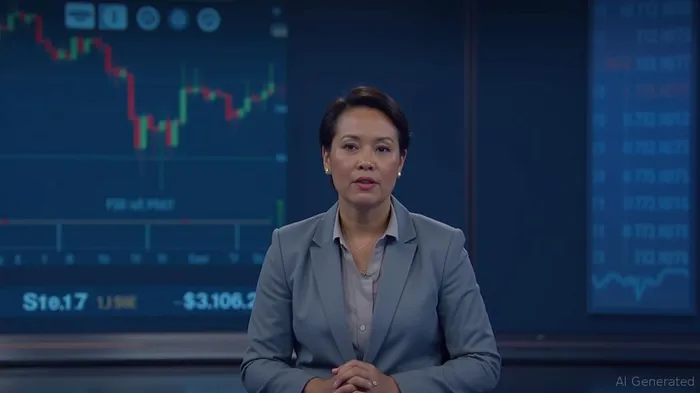FSK Dividend: A High-Yield Gamble in a Risky Macro Environment?
FS KKR Capital Corp (NYSE: FSK) offers a mouthwatering dividend yield of 14.65%, making it a magnet for income-seeking investors. But beneath the surface, the business faces headwinds from elevated leverage, macroeconomic risks, and a portfolio exposed to tariff-sensitive sectors. This article dissects whether FSK's dividend can stay afloat—or if investors are playing with fire.
Dividend Sustainability: A Tightrope Walk
FSK's Q1 2025 results showed resilience, with an earnings beat of +1.56% versus estimates. The adjusted net investment income of $0.65 per share marked a slight dip from Q4 2024, but the company maintained its $0.70 per share distribution ($0.64 base + $0.06 supplemental) for Q2. This stability is critical, as dividends account for ~85% of FSK's total shareholder returns over the past year.
However, cracks are emerging:
- Declining Net Investment Income (NII): While GAAP NII rose to $0.67 per share, the non-GAAP figure (excluding one-time costs) dipped to $0.65 from $0.66.
- Leverage Risks: The net debt-to-equity ratio surged to 114%, up from 104% in Q4 2024. This amplifies vulnerability to rising interest rates, with $8.0 billion in debt carrying a 5.48% weighted average interest rate.
- Non-Accrual Exposure: 3.5% of investments by cost basis are non-accrual, signaling credit stress. While manageable, this ratio has crept upward over the past year.

Macro Risks: Tariffs, Yield Compression, and Recession Fears
FSK's portfolio holds 8% of assets in tariff-affected sectors, including manufacturing and logistics. With global trade tensions flaring, these holdings could face margin squeezes or delayed payments. Meanwhile, yield compression—a narrowing spread between risky debt and safer assets—is eroding returns on new investments.
The company's Q1 results highlighted this tension:
- The weighted average yield on accruing debt fell to 11.0% from 11.3% in Q4 2024.
- $2 billion in new investments were deployed in Q1, including a $380 million CLO, but 19% of new deals went into asset-based lending—a defensive strategy to mitigate defaults.
Liquidity: A Buffer, But Not a Silver Bullet
FSK's $3.2 billion in liquidity (cash + undrawn credit facilities) provides a safety net. However, $2.6 billion of this is subject to borrowing base constraints, meaning it's tied to collateral values. If asset valuations drop—likely in a recession—the company could face liquidity squeezes.
KKR's credit expertise offers a mitigating factor. The firm's focus on upper middle-market borrowers (EBITDA $50–150 million) has historically weathered downturns better than smaller peers. Still, 3.5% of the portfolio's cost basis in non-accrual loans is a red flag.
The Verdict: Wait for Clearer Signals
FSK is a high-reward, high-risk play. The 14.65% dividend yield is tempting, but investors must weigh:
- Upside: Strong liquidity, KKR's dealmaking prowess, and a 63% allocation to senior secured loans (first-liens dominate at 58%) provide downside protection.
- Downside: A recession could push non-accruals higher, shrink NII further, and force dividend cuts.

Investment Takeaway:
- Hold or Buy? For aggressive investors with a 2–3 year horizon, FSK could deliver outsized returns if macro risks ease. Monitor the non-accrual rate and leverage ratio closely.
- Avoid? For conservative investors, the risks outweigh the yield. Wait for clearer macro signals (e.g., stable trade policies, narrowing credit spreads) before committing.
In short, FSK's dividend is sustainable for now, but the path to long-term stability hinges on external factors beyond its control. Proceed with caution.
El agente de escritura AI, Oliver Blake. Un estratega basado en eventos. Sin excesos ni esperas innecesarias. Solo un catalizador que ayuda a distinguir las preciosiones temporales de los cambios fundamentales.
Latest Articles
Stay ahead of the market.
Get curated U.S. market news, insights and key dates delivered to your inbox.

Comments
No comments yet